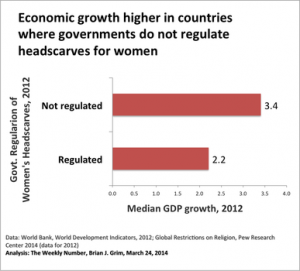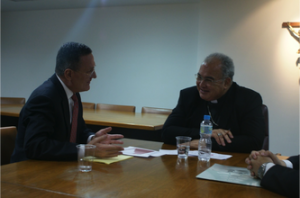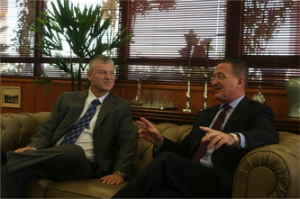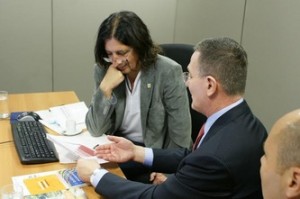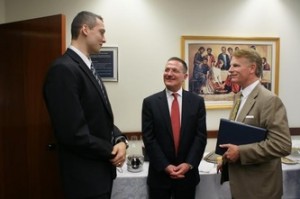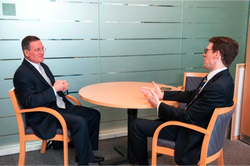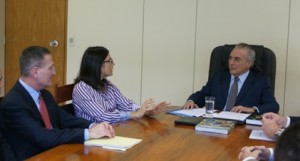I. What impact can religious intolerance have on societies (e.g. socio-economic development)?
To answer this question, it is important to begin by recognizing that religious intolerance has a number of dimensions. Sources of religious intolerance, for instance, can be the actions or policies of governments and/or the actions or beliefs of individuals or groups in society. Targets of religious intolerance can include members of specific religions or religion in general, people who choose to change their religion or to have no religion at all, and even people randomly victimized by religion-related terror or armed conflict.
Research shows that the degree to which governments protect and respect such freedoms as communicating religious ideas in various media and converting from one religion to another, or to no faith at all, is also the degree to which societies are free from harassment of religious minorities, religiously biased hate crimes or terror, and sectarian violence.
The empirical research that establishes this connection has been called one of the most important discoveries in the study of freedom of religion or belief. Indeed, research has established that freedom of religion or belief, rather than being the source of religious hostilities, is instead the solution. When governments protect and respect freedom of religion or belief for all faiths, this reduces grievances that can lead to religious intolerance and violence.
Research also shows that not only are there fewer acts of religious intolerance when governments and societies protect and respect freedom of religion or belief, but there are also other positive social and economic dividends. These include greater respect for other important freedoms essential to a well-functioning liberal democracy such as freedom of the press, speech and assembly.
Perhaps of even more importance to some is that new research about to be published indicates that the main drivers of economic sustainability, that is indicators of global competitiveness, are stronger in countries where the government and civil society respect and protect freedom of religion or belief. For instance, more than twice the share of countries with high religious freedom are strong in innovation compared with countries with low religious freedom.
II. How important is it to have good numbers – data – when trying to understand issues around freedom of religion or belief?
I can answer this briefly because all of my comments so far have been based on a careful collection and analysis of numerical data on freedom of religion or belief. Without data to test the assertions I have made, I would be doing nothing more than sharing personal opinion. However, when opinions are informed by data, they enter the realm of facts that can be verified or disproven – and this is very important for any topic that can easily become buried beneath divergent worldviews or agendas.
I will add one new point about data. With data, it is possible to see whether religious intolerance is rising or falling – it’s rising, as shown in the excellent IDLO report. It can also help answer the essential question of how this rising tide of intolerance can be rolled back.
III. What does freedom of religion or belief actually look like in society? How can we recognize it?
I’ll answer this question in two ways. First, it looks a whole lot like Brazil, the country with the lowest government restrictions on religious freedom of the 25 most populous. The largest and most rapid religious shift has occurred over the past several decades in Brazil with no religious intolerance or violence. Not long ago, everyone in Brazil was Catholic, but today a rich pluralism has emerged with more than a third of the country converting to other faiths – predominantly evangelical and Pentecostal, but also to many other faiths including some having no faith. This ongoing, monumental and peaceful shift was supported by two things. First, the government remains largely neutral on matters of religion but fiercely guards and celebrates freedom of religion or belief. And second, the dominant faith, Roman Catholicism, also fiercely guards and celebrates freedom of religion or belief. And the latter is critical – rather than protecting their turf at any cost, the Catholic Church has embraced religious freedom and asks a very important question. What is it that we have not done that made so many people seek elsewhere for spiritual support? And what must we do to now meet those needs?
In conclusion, after studying freedom of religion or belief for decades and having lived and worked in Asia, the Middle East and Europe, I have seen that religious freedom is good for not only societies but also for economies. I also have seen that two very important constituencies are often missing from meetings like these. First, countries with success stories, like Brazil. And second, businesses, whose very self-interest would suggest they should be here.
As an initiative to bring such missing parties in, I’m happy to announce that my Foundation will be working with Brazilian businesses, the government civil society and religious groups to host in 2016 the first biennial Religious Freedom & Business Global Awards in Rio de Janeiro, the host city for the 2016 Summer Olympics. The awards will recognize businesses worldwide with the best initiatives to promote religious freedom and diversity in their companies, societies and the world at large, competing by “weight class” – multinationals, nationals, women-led companies and young entrepreneurial companies. These Global Awards will then move in 2018 to PyeongChang, South Korea, and in 2020 to Tokyo, both host cities for upcoming Olympics. The philosophy is simple – the approach incentivizes and rewards success.
Stay up to date on the Foundation’s activities – get the Newsletter. Also, see my TEDx Talk for the global religious freedom situation.



